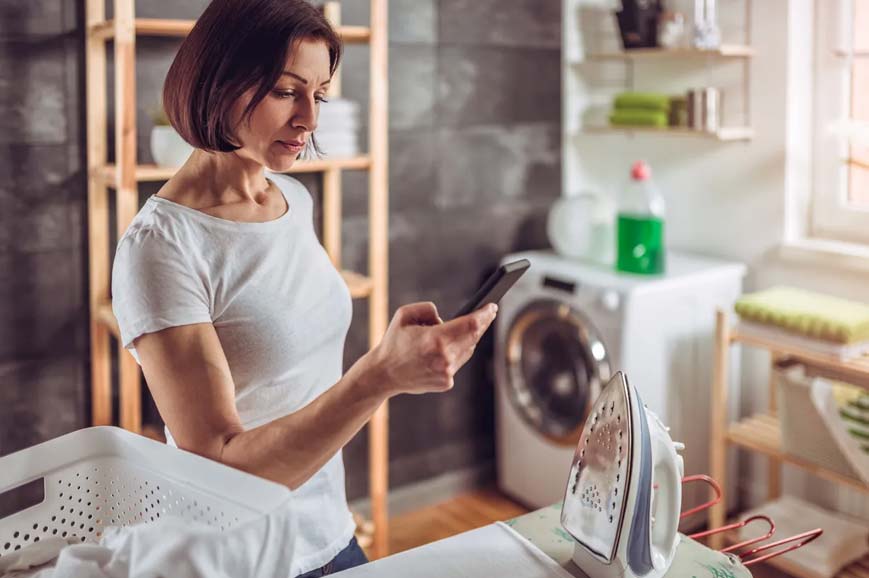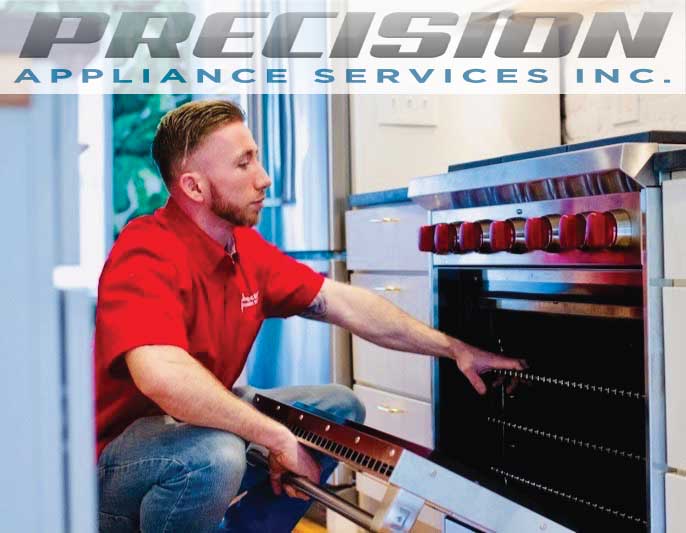The Ultimate Guide to Recognizing Appliance Repair Work at Home
When your fridge stops cooling down or your oven rejects to warmth, it can feel overwhelming. Understanding appliance repair service in the house can conserve you time and money. You'll discover to acknowledge signs, utilize vital devices, and adhere to an organized troubleshooting procedure. Prior to you start, there are crucial safety preventative measures you need to take into account. What are the most typical issues, and just how can you repair them? Allow's check out the fundamentals.
Usual Device Issues and Their Symptoms
When your appliances start acting up, it's important to recognize the indicators at an early stage. Disregarding them can lead to bigger issues and expensive repair services. For circumstances, if your refrigerator isn't cooling appropriately, you may discover cozy areas or condensation creating. This could suggest a failing compressor or an obstructed vent.Your dish washer might show problems with dirty recipes or uncommon noises throughout cycles. If you hear grinding or clanking, it's time to investigate.A cleaning maker that won't spin or drain pipes can leave you with soggy laundry, recommending a stopped up drain or a malfunctioning pump.Lastly, if your oven's temperature level seems off or it takes forever to preheat, you may be dealing with a damaged thermostat. By staying sharp to these signs, you can address concerns before they rise right into major repairs.
Important Tools for Home Appliance Fixing
When you're tackling device repair services in your home, having the right devices is vital. Standard hand tools like screwdrivers and pliers will certainly aid you disassemble and deal with different devices, while electric screening tools ensure you're functioning safely with circuitry. Allow's review what you require to start on your fixing trip.
Fundamental Hand Tools
Having the right tools is important for efficient device repair service in the house. Begin with a reliable screwdriver set, consisting of both flathead and Phillips types, as screws prevail in device setting up. Pliers are additionally vital; they help with gripping, twisting, and cutting cables or little components. A set of needle-nose pliers can get to limited areas quickly. You'll need an excellent adjustable wrench for tightening up or loosening up nuts and bolts. An utility knife is convenient for puncturing packaging or insulation. Ultimately, don't neglect a strong workbench or surface area to securely arrange your devices and parts. With these standard hand devices, you'll be well-prepared to tackle most home appliance repair work that come your means.
Electric Testing Instruments
Along with fundamental hand devices, electrical screening tools play a necessary duty in device repair work. These devices help you identify electrical concerns and warranty home appliances work securely. A multimeter is vital; it measures voltage, existing, and resistance, enabling you to determine issues promptly. A non-contact voltage tester is one more must-have, letting you discover live cords without making straight contact, enhancing your safety and security. Clamp meters are fantastic for measuring current flow in cords without disconnecting them, saving you time and initiative. In addition, circuit testers can quickly examine if electrical outlets are operating properly. By making use of these devices, you'll enhance your troubleshooting procedure and enhance your repair skills, making device maintenance a lot easier.
Step-by-Step Overview to Diagnosing Appliance Issues
When your home appliance breaks down, it can be aggravating, yet identifying the problem doesn't have to be overwhelming. You'll learn to recognize common issues and use effective repairing techniques. Let's walk through the steps to obtain your device back in functioning order.
Typical Device Troubles

Troubleshooting Strategies Described

Repairing Significant Kitchen Area Appliances: A Closer Look
Have you ever wondered just how to tackle usual concerns with your kitchen home appliances? Fixing major cooking area devices like fridges, ovens, and dish washers can be simpler than you assume. Begin by identifying the trouble-- whether it's a fridge not cooling or a stove that will not warm. Usually, an easy reset or examining the source of power can resolve the issue.For fridges, tidy the condenser coils and check the door seals. If your stove's not home heating, examine the burner and thermostat. Dishwashing machines might just require a clean filter or a reset to obtain them back in activity. Constantly unplug the home appliance prior to diving right into repairs to ensure your safety.Don' t neglect to consult the customer guidebook for hop over to these guys details troubleshooting pointers connected to your version. With a little persistence and the right devices, you can confidently deal with home appliance fixings and save money while doing so!

Fixing Laundry Equipments: Tips and Techniques
When your washing devices begin acting up, it can feel frustrating, yet repairing them does not need to be a trouble. Beginning by checking the power supply. Validate the home appliance is connected in and the electrical outlet is operating. Next, evaluate the door or cover button; a malfunctioning switch can avoid the equipment from operating.For washers, if it's not spinning, look for out of fishers appliance repair balance loads. Rearranging the clothes could fix the concern. If your clothes dryer isn't heating, tidy the lint filter and inspect the vent for blockages.Listen for uncommon sounds; they can show an issue. If your device is dripping, examine the pipes for cracks or loose connections. File any type of error codes presented on electronic displays, as they can lead you in recognizing the concern. Finally, seek advice from the individual manual for details fixing tips associated with your version.
Safety And Security Preventative Measures to Take During Services
Before you begin any kind of device fixings, it's necessary to focus on safety to stop crashes or injuries. Disconnect the home appliance or turn off the circuit breaker to guarantee no power reaches it while you work. Use shielded devices to reduce the risk of electrical shock. Wear safety goggles and gloves to shield on your own from sharp edges or debris (Washer dryer repair service Dependable Refrigeration).Make particular your office is tidy and well-lit, so you can see what you're doing. Maintain kids and animals far from the area to stay clear of interruptions and possible hazards. If you're managing gas home appliances, be extra careful; look for leaks before proceeding.Take your time, and don't hurry through repairs. If you really feel uncertain about any type of action, it's better to stop and research than to guess. Adhering to these precautions will certainly help produce a much safer setting for your DIY home appliance fixing job
When to Call a Specialist for Aid
How do you understand if it's time to call in a specialist for appliance repairs? If you've attempted basic troubleshooting without success, it's a clear indicator. For example, if your appliance still will not begin or reveals uncommon sounds after resetting it, don't think twice to look for specialist help.When you notice leaks, smoke, or burning scents, focus on safety and call a pro right away. These problems can cause more considerable damage or posture dangers to your home.Also, if your home appliance is under guarantee, calling an expert is often the most effective path. They can guarantee that repairs will not nullify your guarantee, saving you cash in the long run.Finally, if you're unclear or uncomfortable with complex repair services, it's smart to leave it to the experts. Keep in mind, dealing with challenging issues without the appropriate experience can result in pricey errors. Depend on a professional when doubtful!
Frequently Asked Concerns
Just How Can I Protect Against Appliance Troubles in the Future?
To avoid device issues in the future, you should do routine upkeep, check for damage, clean filters, and stay clear of overloading. Staying positive will certainly assist extend their life expectancy and keep them running smoothly.
What Are one of the most Common Do It Yourself Appliance Repair Service Mistakes?
You could ignore safety preventative measures, miss fixing actions, or make use of incorrect devices when trying DIY appliance fixings. Rushing the procedure or overlooking producer standards can cause even more significant problems and pricey blunders. Remain patient and educated!
How Do I Know if a Part Requirements Substitute?
You can tell if a component needs substitute by examining for unusual noises, leakages, or irregular efficiency. If the device battles to run correctly or shows visible damages, it's most likely time for a substitute.
Can I Use Generic Parts for Appliance Repairs?
Yes, you can use common parts for appliance repairs, yet establish they're top article compatible - Dependable Refrigeration & Appliance Repair Service Washer repair near me. Generic components may save you money, but they can influence efficiency or long life, so consider your choices meticulously prior to choosing
What Service Warranties Cover Appliance Repairs?
Most home appliance warranties cover repairs for manufacturing issues, however they frequently leave out damages from misuse. Inspect your guarantee terms carefully, as some could need utilizing certified professionals and initial parts for coverage to stay valid.